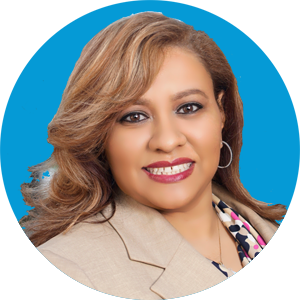Ever heard of a PEO payroll? The acronym stands for Professional Employer Organization, an organization that provides comprehensive solutions for employers in the areas of payroll, human resources, employee benefits and insurance. The team of experts at a PEO not only helps relieve the burden of HR administration, but also helps mitigate risk by keeping business owners in compliance with federal, state and local regulations .

Payroll Services
PEOs are known for providing a broad range of payroll solutions, with a specialty in running payrolls that are complex ( job costing, holiday and overtime pay, per diems and multiple pay rates to name a few). The PEO takes care of garnishment deductions and payroll tax withholdings from employees. That means all employers or administrators have to do is enter employee payroll information and hours worked, and the PEO will pay employees (via paper check, direct deposit, cash card and more).
As a part of the payroll solutions provided by a PEO, W-2 and W-3 processing, all payroll-related tax return preparation and federal and state tax filings (quarterly and year-end tax reports too) are handled. PEOs even process unemployment claims and work with the state on behalf of employers by hosting telephone hearings and advice.
Unlike other payroll companies, PEOs bundle services and take HR support above and beyond just a payroll software. Here are five ways a PEO provides value beyond payroll services.
Technology
Some payroll companies have clients use payroll software for payroll processing. Many PEOs utilize a Human Resources Information System (HRIS) for online payroll and more. The HRIS maintains personnel files, employee forms and time off requests. Employers can approve PTO requests through email alerts, manage PTO accrual and balances, access a library of standard reports or create advanced reports and hire or terminate employees.
Through the employee self-service portal (many times, a mobile app is available too), staff members can manage personal information, view and print W-2s or pay stubs and request time off.
Employment Practices Liability Insurance (EPLI)
Beyond payroll and technology, PEOs work to assist with the HR risks business owners might face. One way is to assist clients with lawsuits filed by current or former employees. These include claims of discrimination and harassment. Here are some specific examples of the types of claims covered under an EPLI policy (assuming certain policy conditions are met):
- Discrimination based on race, color, creed, national origin, gender, military service, pregnancy, sexual orientation, marital status, sex, religion, age, disability, handicap or any other protected class
- Wrongful termination
- Retaliation
- Sexual harassment
- Whistleblower claims
The most recent data from the U.S. Equal Employment Opportunity Commission (EEOC) shows that retaliation was the most frequently filed charge in 2017 (48% of all charges filed). Race, Sex, Disability, and Age rounded up the top five. Many times, employers don’t believe their employees will sue them and overlook EPLI coverage. However, the cost of one claim could be enough to force a business to close up shop.
For example, in 2017, the average total cost of claims that resulted in a defense and settlement payment was $160,000. The average employer’s self-insured retention deductible is $50,000, so without any additional employer liability protection, an employer would have to pay approximately an extra $110,000 out of pocket to settle each case.
HR Compliance Support
PEOs consult on other aspects of employment law to provide guidance about topics like performance management, employee relations, wage and hour requirements and termination. Wage and hour laws are some of the most commonly violated and cover minimum wage, overtime, hours worked, recordkeeping and child labor. Here is a summary link to the major laws of the Department of Labor.
A PEO’s HR support team also fields client questions about other federal laws and acts like the following:
- The Americans with Disabilities Act (ADA), which usually has to do with discrimination. The Florida Medical Leave Act (FMLA), which has to with protecting an employee's job while on medical leave.
- The Affordable Care Act (ACA), which requires that employers of a certain size provide health insurance coverage to their employees.
Often, employers, especially small business owners who may just be starting out, don’t know what they don’t know about employment laws. Some of the most common mistakes made with leave laws include denying an eligible employee coverage, failing to meet notification requirements, reinstating an employee to a lesser position, asking an employee to perform work while on leave and terminating an employee unable to return to work.
Employee Benefits and Benefits Administration
PEOs consult with clients to create a benefits package that fits their needs. PEO plans typically include access to the following:
- Major medical
- Dental
- Vision
- Term Life and AD&D
- Short and Long Term Disability
- Minimum Essential Coverage (MEC)
- Retirement Savings Plans (with or without employer match)
- Employee Assistance Program (EAP)
- Flexible Spending Accounts
- Entertainment Discounts
Once that benefits package is created. PEOs administer the plans by paying and communicating with carriers, adding or deleting employees, processing change requests, managing claims and online support for open enrollment.
Workers’ Compensation Insurance
Affordable workers’ compensation rates with flexible programs often draw clients to a PEO. The PEO’s safety experts offer advice to business owners to help keep employees safe - and claims down. Those experts also help create safety programs by conducting safety audits, facilitating safety improvement plans and providing training and resources.
Preventing hazards is key to keeping employees safe. In 2017 alone, 5,147 workers were killed on the job - that’s 14 deaths every day. The majority of those killed were construction workers who fell, were struck by an object, electrocuted or caught in between pieces of equipment.
When a worker does get hurt, a PEO manages claims and helps coordinate return-to-work programs for employees.
FrankCrum is a Florida-based PEO that provides reliable payroll service, a broad range of HR services, top employee benefits plans, and affordable workers’ compensation insurance. Whether your current payroll system is too complicated or you don’t know which tax forms you need to file, we can help.





